Dubai Travel Guide
Dubai is both one of the United Arab Emirates and its trendy capital, full of crazy skyscrapers, luxury hotels and designer boutiques. On the menu: caviar, champagne, marble, crystal and 24-carat gold! At night, fortunes are flaunted, VIPs show off and DJs electrify the dance floor. The show is permanent in this city where all nationalities, luxury cars and giant boats cohabit. A concentrate of excess and records with the Burj Khalifa 830 m high, the widest 7-lane highway in the world, a marina with 200 skyscrapers, the Burj Al Arab, the only self-proclaimed 7-star hotel in the world with a gold-plated elevator. Dubai is undoubtedly the most fashionable place in the Middle East, attracting the jet-set of the Arab countries, VIPs from all over the world and more or less wealthy tourists. Spectacular, the immense Palm, an artificial island in the shape of a palm tree with 8,000 luxury villas, and this World, an archipelago of 300 artificial islands making up the world map. Incredible, this covered ski resort.
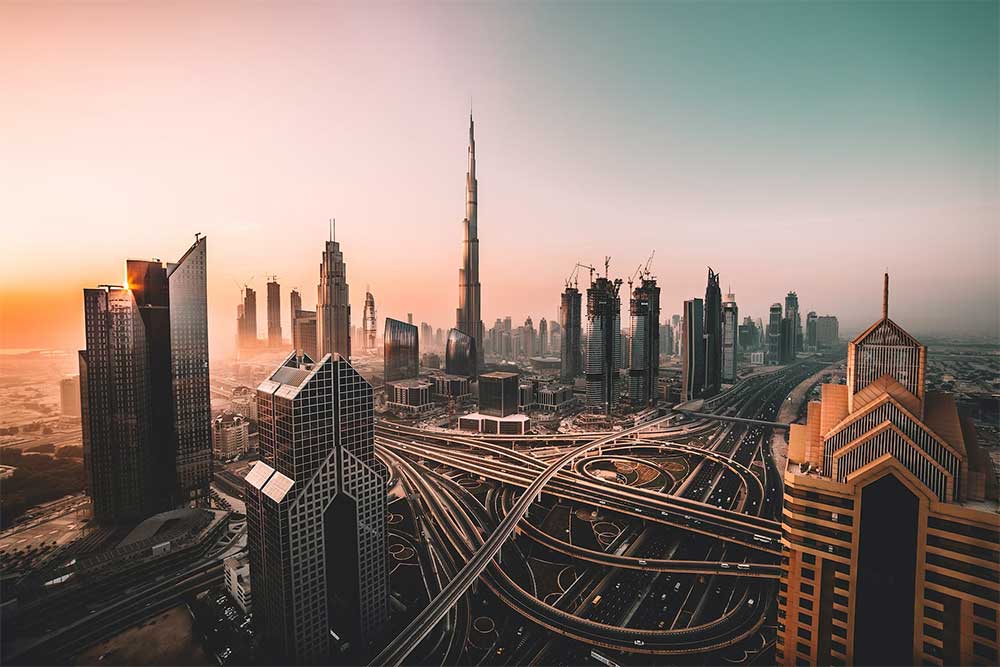
In addition to its bling bling city, which came out of the sand in 30 years, Dubai offers a magnificent desert, but also its mountains with the Hajar chain bordering the Sultanate of Oman. And the tourists have a great time: bathing pleasures and amusement parks, 4X4 races through the dunes, night under a tent in the desert, horse races or Formula 1 world championship… Dubai is the madness of grandeur without any limits.
Visa requirements for Dubai
Will I need a visa to enter Dubai ? Yes, you will need a visa to travel to Dubai if you are American, European, or from another nationality. The visa requirements vary depending on your nationality and the purpose of your visit.
If you are a citizen of the United States, the European Union, or another select group of countries, you may be eligible for a visa on arrival. This means that you can obtain a visa upon arrival at the airport in Dubai, as long as you meet certain requirements and have the necessary documentation.
If you are not eligible for a visa on arrival, you will need to apply for a visa before you travel. This typically involves submitting an application, along with supporting documents such as your passport, travel itinerary, and proof of accommodation.
It’s important to note that the visa requirements for Dubai are subject to change, so it’s always a good idea to check the latest information before you travel. The best place to find up-to-date information on visa requirements is the website of the United Arab Emirates embassy or consulate in your country.
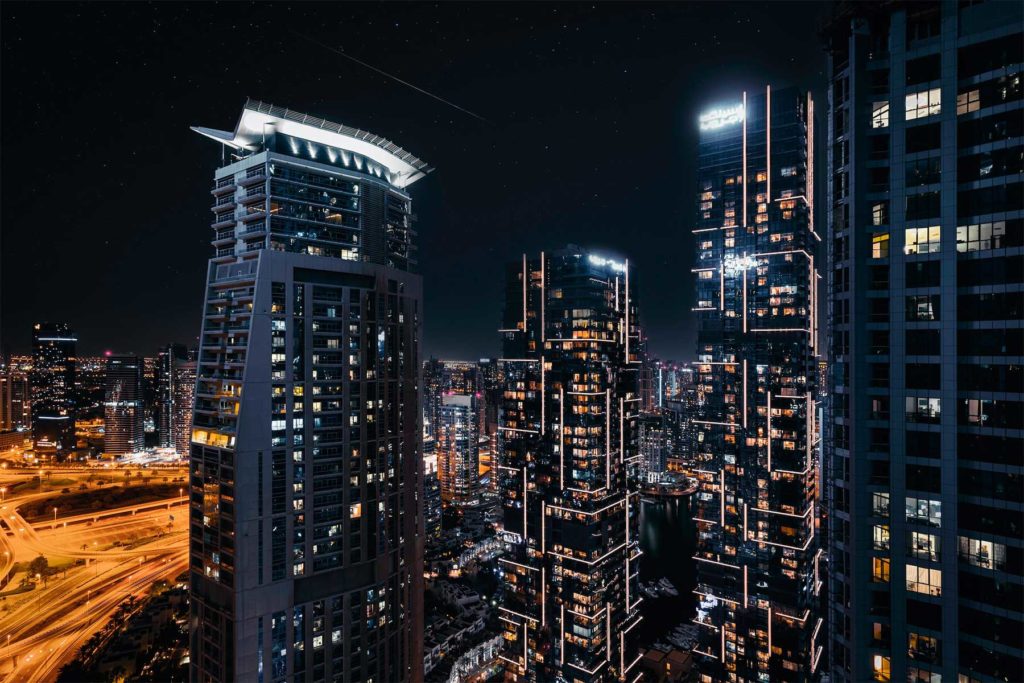
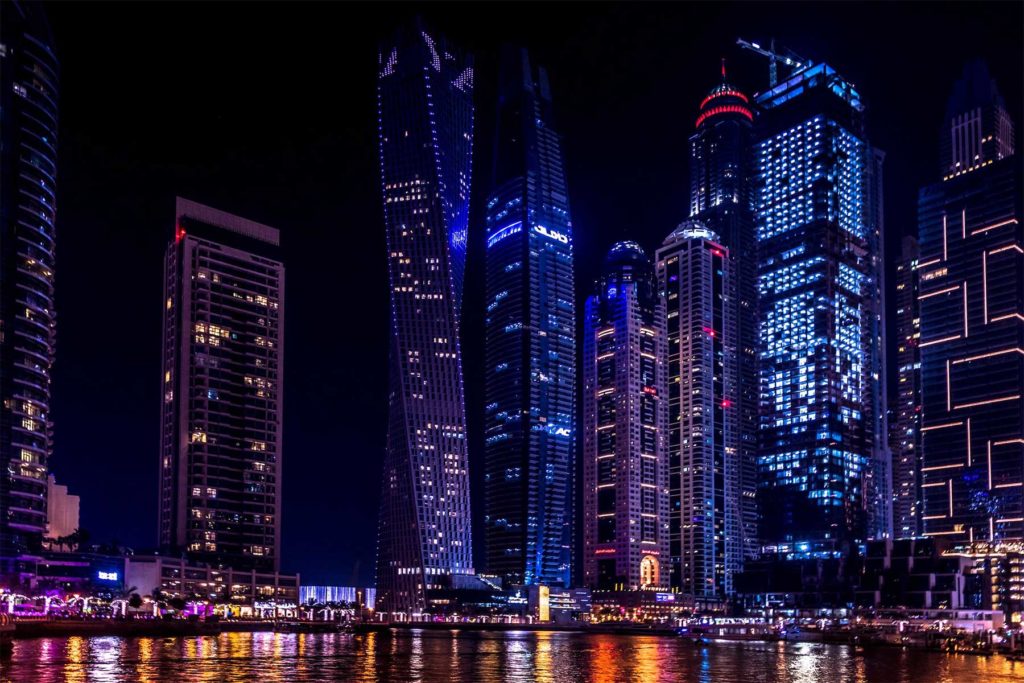
How to get from Dubai airport to the city center
There are several options for getting from Dubai International Airport to the city center:
Taxi: Taxis are available 24/7 at the airport, and are a convenient way to get to the city center. The cost of a taxi ride from the airport to the city center varies depending on your destination, but it typically ranges from AED 50 to AED 100 (approximately USD 14 to USD 27).
Dubai Metro: The Dubai Metro is a fast and efficient way to get to the city center. The Red Line runs from Terminal 3 of the airport to various destinations in the city center. The cost of a one-way ticket on the metro ranges from AED 2 to AED 6 (approximately USD 0.50 to USD 1.60), depending on the distance traveled.
Dubai Bus: Dubai buses are another affordable option for getting to the city center. The airport offers several bus routes that serve various destinations in the city. The cost of a one-way ticket on the bus ranges from AED 3 to AED 15 (approximately USD 0.80 to USD 4), depending on the route and distance traveled.
Private transfer: If you prefer a more comfortable and hassle-free option, you can book a private transfer from the airport to your destination in the city. The cost of a private transfer varies depending on the type of vehicle and the distance traveled, but it typically ranges from AED 100 to AED 250 (approximately USD 27 to USD 68).
Dubai’s neighbourhoods
Deira: Located on the northern side of the Creek, Deira is one of the oldest neighborhoods in Dubai. It’s known for its traditional souks (markets), such as the Spice Souk and the Gold Souk. Points of interest include the Dubai Museum, the Deira Twin Towers, and the Deira City Centre shopping mall. Visitors can also take a traditional abra boat ride on the Creek, or enjoy a meal at one of the many restaurants in the area.
Bur Dubai: Located on the southern side of the Creek, Bur Dubai is a busy and bustling neighborhood. Points of interest include the Dubai Museum, the Grand Mosque, and the Textile Souk. Visitors can also take a traditional abra boat ride on the Creek, or enjoy a meal at one of the many restaurants in the area.
Jumeirah: This upscale neighborhood is known for its luxury hotels, such as the Burj Al Arab and the Jumeirah Beach Hotel. Points of interest include the Jumeirah Mosque, the Wild Wadi Water Park, and the Dubai Marina. Visitors can also take a walk along Jumeirah Beach and enjoy the various water sports on offer.
Dubai Marina: This modern neighborhood is known for its luxury high-rise buildings, such as the Princess Tower and the Cayan Tower. Points of interest include the Dubai Marina Mall, the Dubai Marina Walk, and the Dubai Marina Yacht Club. Visitors can also take a walk along the marina and enjoy the various water sports on offer.
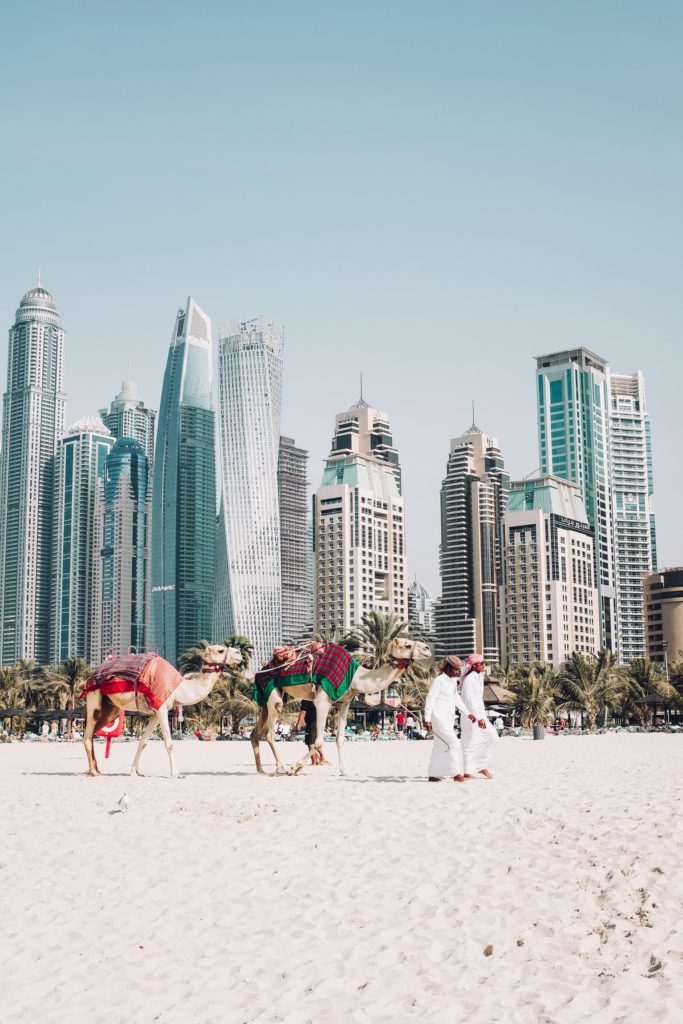
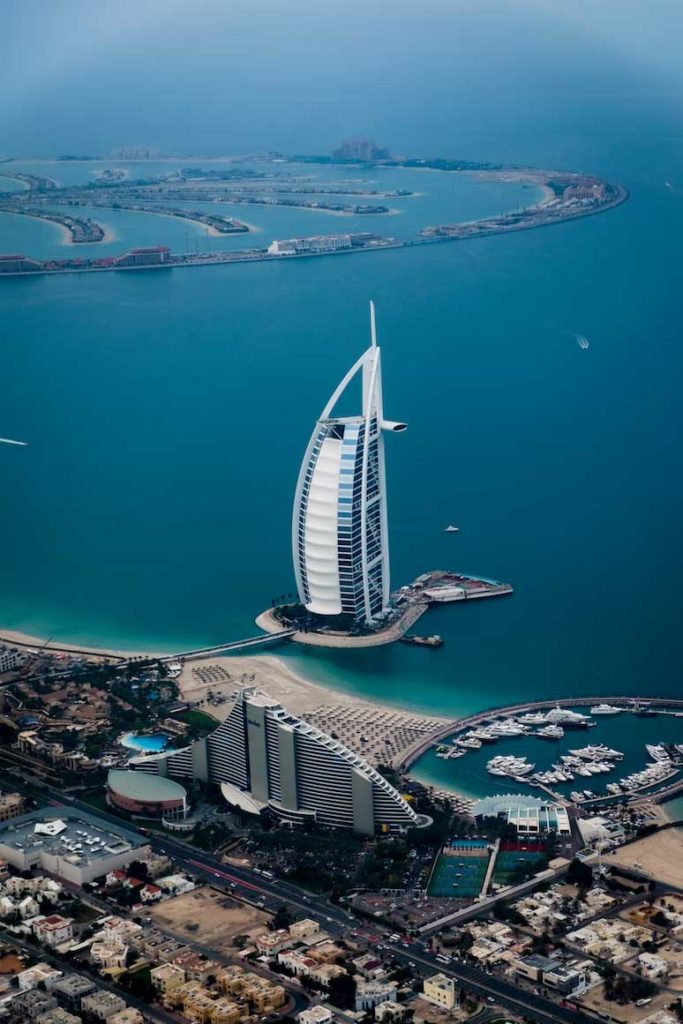
Dubai Mall: This neighborhood is known for its large shopping mall, the Dubai Mall. Points of interest include the Dubai Fountain, the Dubai Aquarium, and the Underwater Zoo. Visitors can also take a walk along the Dubai Mall and enjoy the various shops and restaurants on offer.
The Palm Jumeirah: This man-made island is known for its luxury hotels, such as the Atlantis The Palm and the Waldorf Astoria. Points of interest include the Palm Jumeirah Boardwalk, the Palm Fountain, and the Lost Chambers Aquarium. Visitors can also take a walk along the Palm Jumeirah and enjoy the various water sports on offer.
Points of interests and activities to do in Dubai
Dubai is a popular tourist destination known for its luxury shopping, modern architecture, and vibrant nightlife. Some of the most popular tourist landmarks in Dubai include:
Burj Khalifa: The tallest building in the world, standing at 828 meters tall. Visitors can take an elevator to the observation deck on the 124th floor for panoramic views of the city.
The Dubai Mall: One of the largest shopping centers in the world, featuring over 1,200 stores, a large aquarium, and an indoor ice-skating rink.
The Palm Jumeirah: An artificial island in the shape of a palm tree, featuring luxury resorts, restaurants, and shopping. Visitors can take a monorail to the top of the island for views of the city.
The Dubai Fountain: A spectacular fountain show set in front of the Burj Khalifa, with water and light shows set to music.
Dubai Museum: A fascinating glimpse into the history and culture of Dubai, housed in the Al Fahidi Fort, the oldest building in the city.
The Dubai Creek: A historic waterway that runs through the city, offering traditional boat rides and a glimpse of old-world Dubai.
Ski Dubai: An indoor ski resort, featuring ski slopes, snowboarding, and a variety of winter sports.
Dubai Creek Tower: The tower is currently under construction and will be the tallest tower in the world.
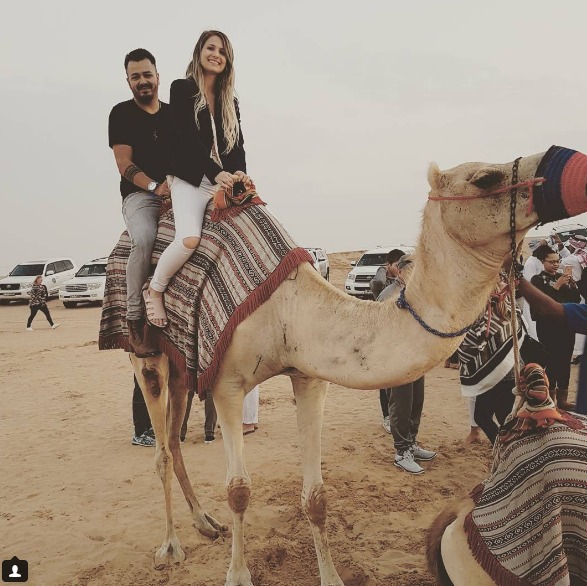
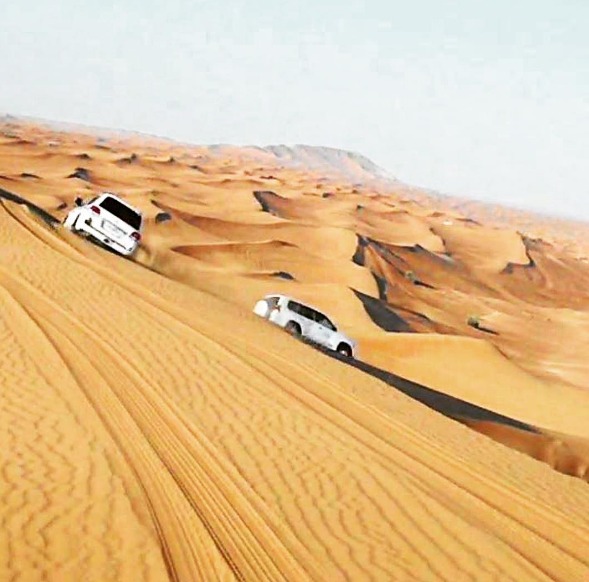
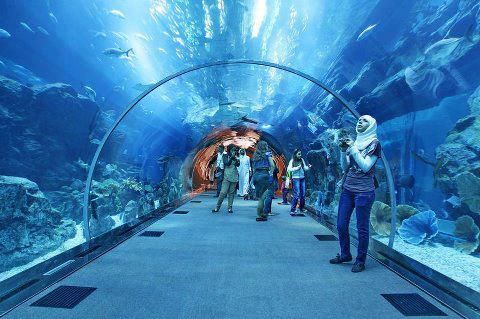
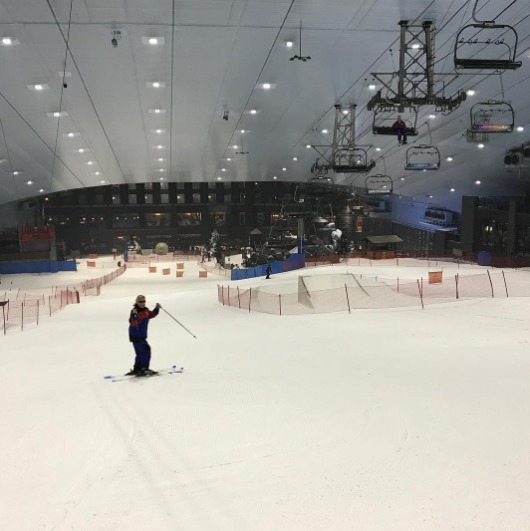
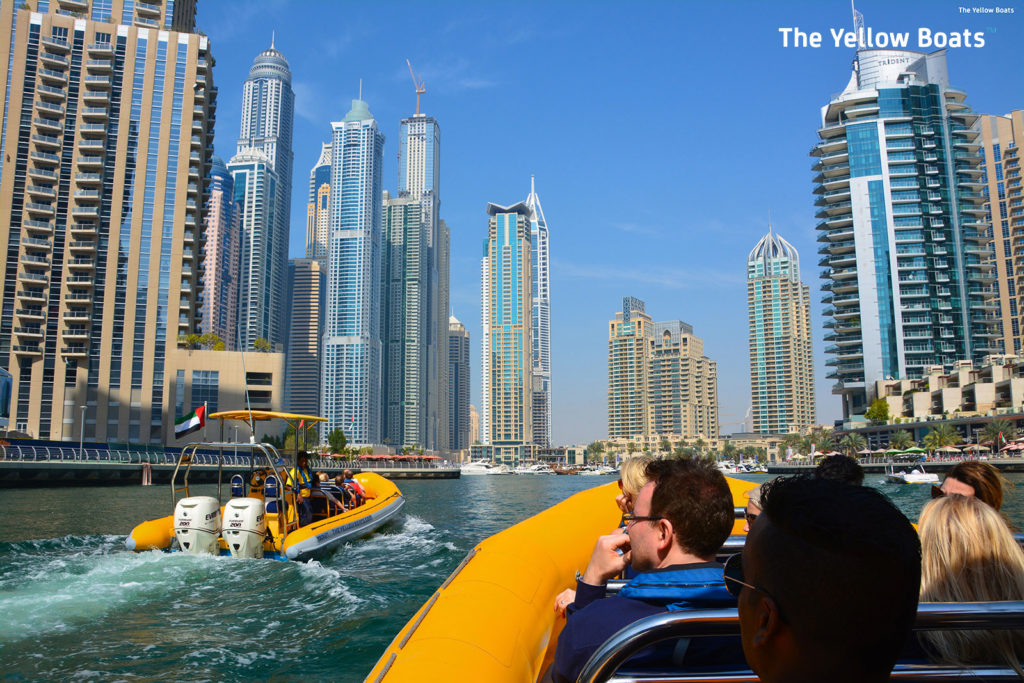
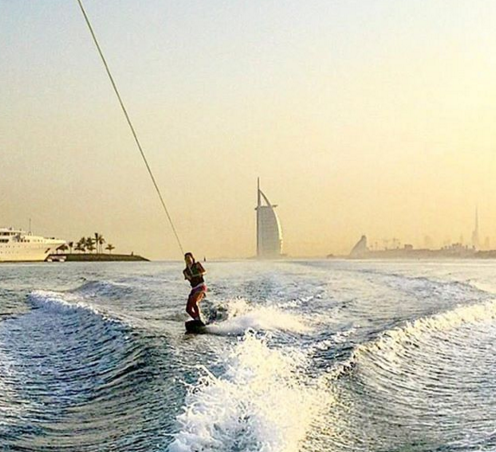
Activities to do in Dubai include:
Visit the Burj Khalifa: The Burj Khalifa is the tallest building in the world, and a must-see attraction in Dubai. You can take an elevator to the top of the building for stunning views of the city.
Visit the Dubai Mall: The Dubai Mall is one of the largest shopping malls in the world, with over 1,200 shops, restaurants, and entertainment options. You can shop, dine, and even go ice skating or see a movie.
Experience the Dubai Fountain: The Dubai Fountain is a spectacular water and light show that takes place every evening at the base of the Burj Khalifa. The show features music and choreographed water jets that shoot up to 500 feet in the air.
Go on a desert safari: A desert safari is a fun and adventurous way to experience the natural beauty of Dubai. You can go dune bashing, camel riding, and even enjoy a traditional Bedouin-style dinner under the stars.
Visit the Dubai Miracle Garden: The Dubai Miracle Garden is a stunning botanical garden that features over 45 million flowers arranged in beautiful and intricate designs.
Explore the Dubai Museum: The Dubai Museum is located in the oldest building in Dubai, and offers a fascinating glimpse into the city’s history and culture.
Go skiing in the desert: Ski Dubai is an indoor ski resort located in the Mall of the Emirates. You can go skiing, snowboarding, and even play in the snow in the middle of the desert.
Visit the Palm Jumeirah: The Palm Jumeirah is a man-made island shaped like a palm tree, with luxury hotels, restaurants, and entertainment options.
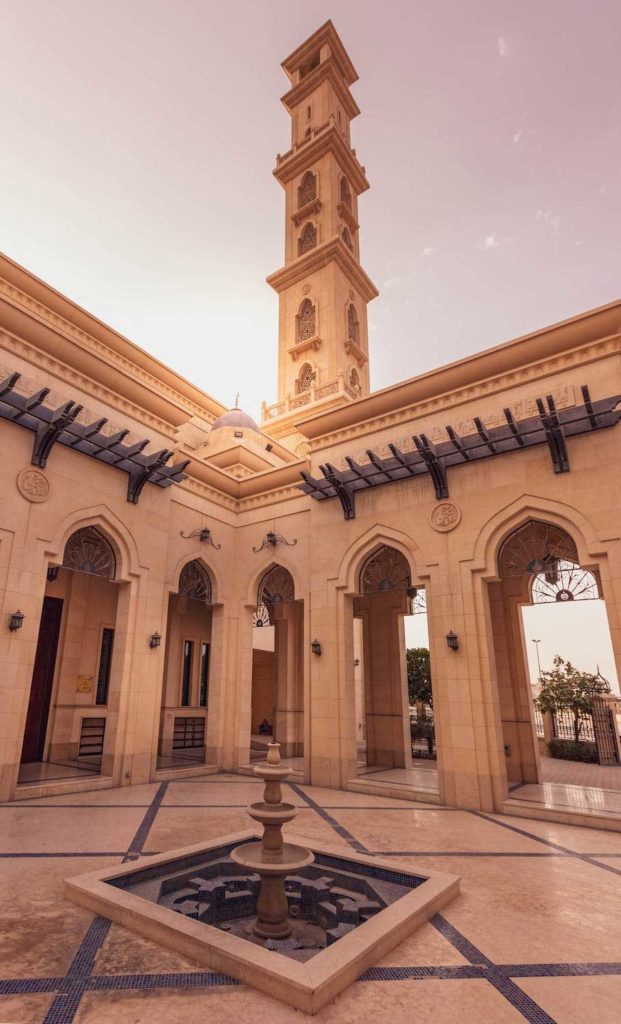
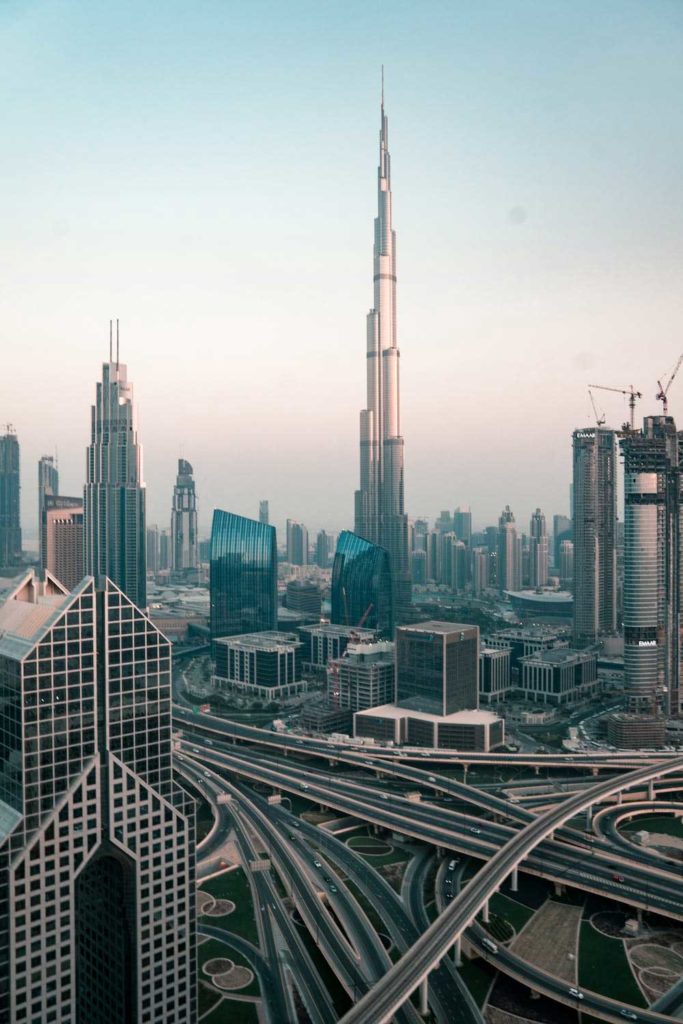
Fun things to do with kids and then with teens in Dubai
Fun things to do with kids:
Visit Dubai Aquarium & Underwater Zoo: This is one of the largest indoor aquariums in the world and is home to thousands of marine animals. Kids will love walking through the underwater tunnel and seeing sharks, stingrays, and other sea creatures up close.
Go to Legoland Dubai: Legoland Dubai is a fun theme park that is perfect for kids. It features over 40 rides, shows, and attractions, all themed around the colorful world of Lego.
Visit Dubai Miracle Garden: Dubai Miracle Garden is a beautiful garden with millions of flowers arranged in different designs. Kids will enjoy seeing the colorful flower displays, playing in the children’s play area, and taking family photos.
Spend a day at the beach: Dubai has many beautiful beaches, such as Jumeirah Beach and Kite Beach. You can rent a beach umbrella and enjoy a day of swimming, sunbathing, and playing in the sand with your kids.
Explore the Dubai Mall: The Dubai Mall is not only a shopper’s paradise but also a great place to take kids. There is an indoor ice rink, an aquarium, a VR park, and a cinema complex that offers 3D and 4D experiences.
Fun things to do with teens:
Visit Ski Dubai: Ski Dubai is an indoor ski resort where you can hit the slopes, go snowboarding or snow-tubing, and play in the snow with your friends.
Go on a desert safari: Teens will love the adventure of a desert safari, which includes dune bashing, camel rides, and a traditional Bedouin-style dinner under the stars.
Visit IMG Worlds of Adventure: IMG Worlds of Adventure is the world’s largest indoor theme park, with over 1.5 million square feet of fun. It features roller coasters, 4D cinema experiences, and a haunted hotel attraction.
Go on a helicopter tour: Seeing Dubai from the air is a truly unforgettable experience, and a helicopter tour is a great way to do it. Teens will love the thrill of flying over the city and getting a bird’s eye view of its iconic landmarks.
Try indoor skydiving: iFly Dubai is an indoor skydiving experience that simulates the sensation of skydiving. It’s a safe and exciting way for teens to experience the thrill of flying.
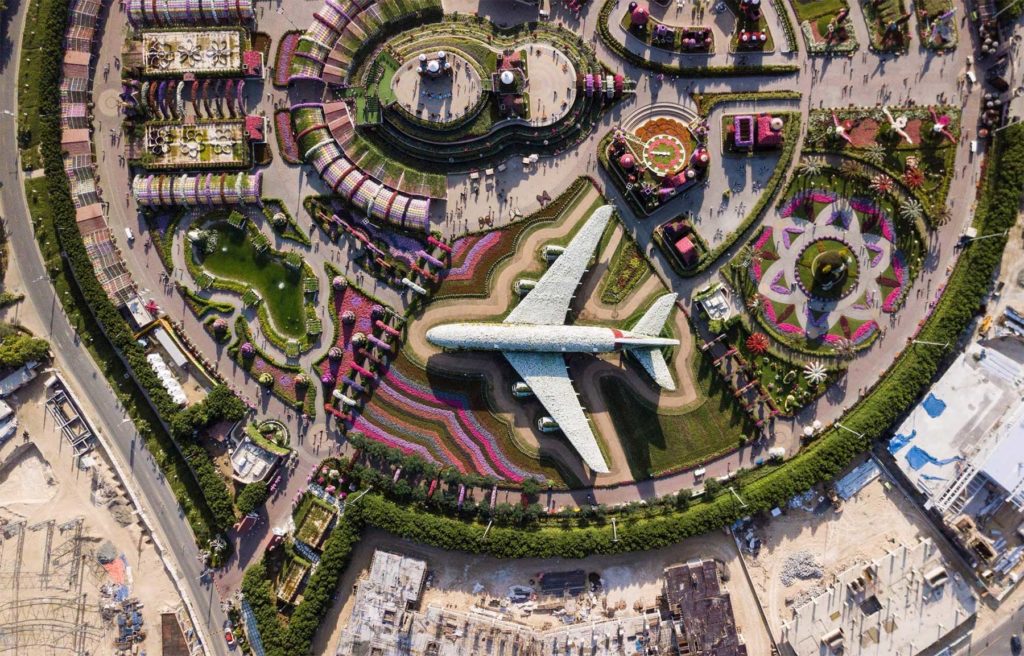
Living like a local in Dubai
Dubai is a vibrant and dynamic city with a diverse range of activities and experiences that locals enjoy in their free time. Here are some of the things that locals like to do in Dubai:
Go to the beach: Dubai has a number of beautiful beaches, and spending time at the beach is a popular activity for locals. Kite Beach, Jumeirah Beach, and La Mer Beach are some of the most popular choices.
Explore the Dubai Creek: The Dubai Creek is a historic part of the city, and locals enjoy taking a walk along the water, watching the traditional wooden boats (abras) go by, and exploring the nearby souks.
Dine out: Dubai is known for its diverse food scene, and locals love to try out new restaurants and cafes. There are plenty of options for all tastes and budgets, from street food to fine dining.
Visit the souks: Dubai’s traditional markets, known as souks, are a popular destination for locals. The Gold Souk, Spice Souk, and Textile Souk are some of the most well-known, and offer a unique shopping experience.
Play sports: Dubai is a city of sports, and locals enjoy playing a variety of sports in their free time, including football, cricket, tennis, and golf. There are plenty of sports clubs and facilities throughout the city.
Visit parks and green spaces: Dubai has a number of parks and green spaces, such as Safa Park and Zabeel Park, where locals can relax, have a picnic, or exercise.
Attend cultural events: Dubai has a thriving arts and culture scene, and locals enjoy attending events such as concerts, art exhibitions, and theatre performances.
Eating in Dubai
Dubai’s dishes
As a cosmopolitan city, Dubai has a diverse culinary scene that reflects its melting pot of cultures and traditions. Here are some of the most popular traditional dishes in Dubai:
Machboos: This is a traditional Emirati dish made with rice, meat (usually chicken or lamb), and a variety of spices. The dish is usually served with a side of yogurt and a tomato and cucumber salad.
Harees: This is a traditional porridge made with wheat and meat, usually chicken or lamb. It’s often served during Ramadan, and it is considered as a comfort food.
Shawarma: This is a popular street food dish made with meat (usually chicken or lamb) that is cooked on a rotating spit and then shaved off to be served in a wrap or pita bread. It’s usually filled with vegetables and a variety of sauces.
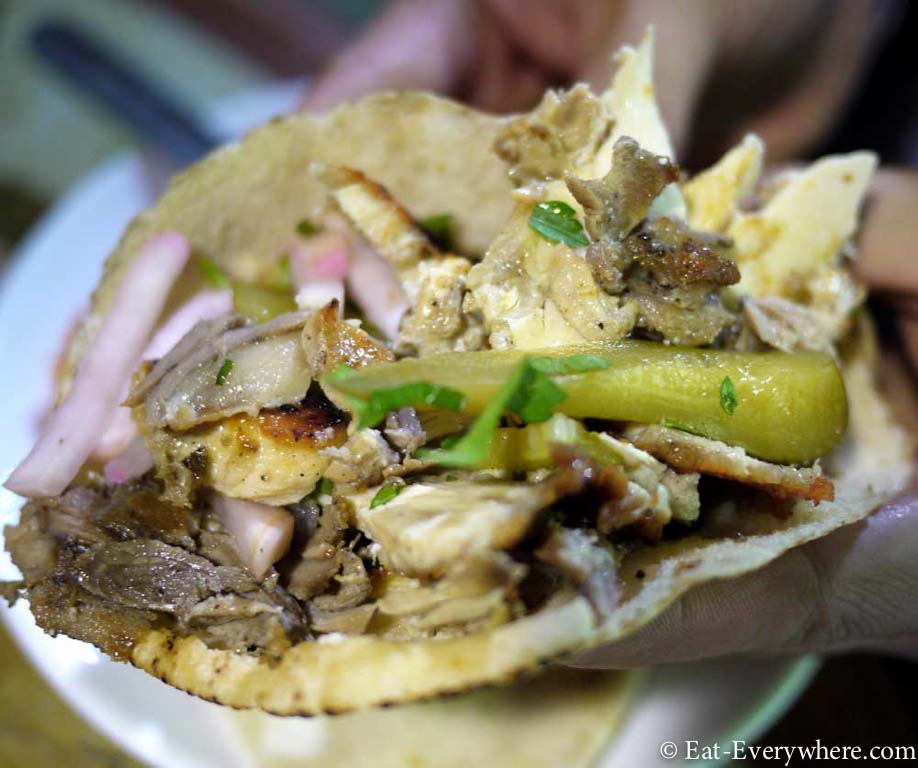
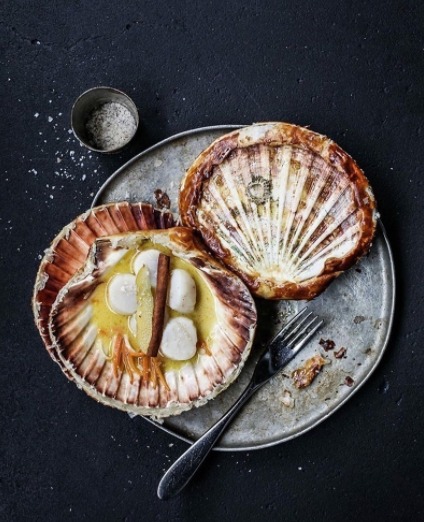
Stuffed Camel: A traditional Emirati dish that is usually served at special occasions such as weddings. The whole roasted camel is stuffed with rice, spices, and sometimes lamb or chicken, and it is considered a delicacy.
Luqaimat: These are small dumplings made from dough and sweet or savory fillings. They are usually served as a dessert and are a popular street food in Dubai.
Hareira: This is a traditional Emirati soup that is usually served during Ramadan. It’s made with lentils, chickpeas, and various vegetables and spices.
Machbous: This is a traditional Emirati dish that consists of rice and a variety of seafood. It is usually served with a tomato and onion based sauce.
Kofta: This is a popular Middle Eastern dish that is made with ground meat (usually beef or lamb) mixed with spices and herbs. The mixture is formed into small balls, and it is usually served with rice or in a wrap.
Machboos Khodar: This is a traditional Emirati dish that is made with rice, vegetables, and a variety of seafood.
Stuffed Vegetable: A traditional Emirati dish that is made by stuffing vegetables such as eggplants, peppers, and tomatoes with meat, rice, and spices.
Emblematic restaurants
As a cosmopolitan city, Dubai has a diverse culinary scene with a wide range of restaurants to suit all tastes and budgets. Here are some of the most iconic restaurants in Dubai:
Al Mahara: Located inside the Burj Al Arab hotel, this seafood restaurant offers an underwater dining experience with floor-to-ceiling aquarium views.
At.mosphere: Located on the 122nd floor of the Burj Khalifa, this restaurant offers a fine-dining experience with panoramic views of the city.
Al Qasr: This award-winning restaurant is located inside the Madinat Jumeirah hotel and offers traditional Middle Eastern cuisine in a luxurious setting.
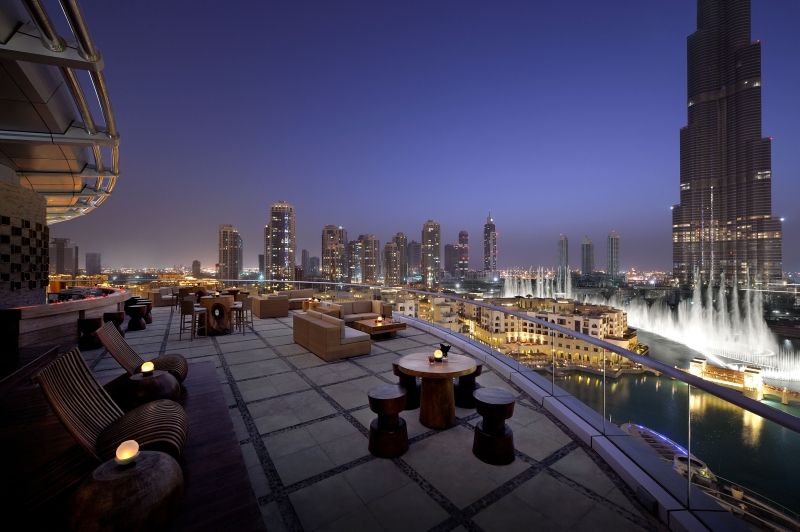
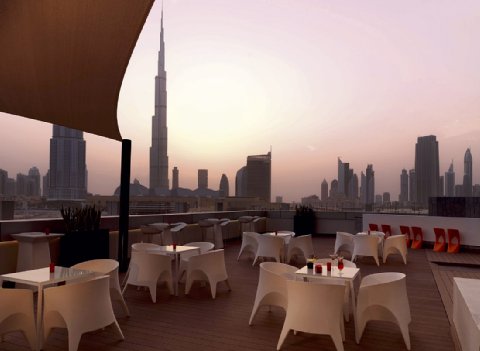
The Ivy: This British-style restaurant is located in the financial district and offers a contemporary menu and a stylish atmosphere.
Rang Mahal: This modern Indian restaurant is located in the JW Marriott Marquis hotel and offers a fine-dining experience with a live cooking station and a rooftop terrace.
Zuma: This Japanese restaurant is located in the DIFC and offers a contemporary menu with a focus on sushi and grilled dishes.
La Cantine Du Faubourg: This French brasserie is located in the Jumeirah Emirates Towers hotel and offers a stylish atmosphere and a menu of classic French dishes.
Nobu: This Japanese restaurant is located in the Atlantis The Palm hotel and offers a contemporary menu with a focus on sushi and grilled dishes.
Coya: This Peruvian restaurant is located in the Four Seasons hotel and offers a contemporary menu with a focus on ceviche and grilled dishes.
La Petite Maison: This French-Mediterranean restaurant is located in the DIFC and offers a contemporary menu with a focus on seafood and grilled dishes.
Dubai’s rooftops
Dubai is a city known for its luxury and glamour, and its rooftop bars and lounges offer visitors the chance to take in the city’s stunning views while enjoying a drink or meal.
Some of the best rooftop bars in Dubai include:
CÉ LA VI Dubai: Located on the 63rd floor of the Address Downtown Dubai, this rooftop bar offers panoramic views of the city and serves a variety of Asian-inspired small plates and signature cocktails.
Level 43 Sky Lounge: Located on the 43rd floor of the Four Points by Sheraton, this rooftop bar offers views of the Arabian Gulf and serves a variety of cocktails and light bites.
REX Bar Dubai: Located in the heart of the city, this rooftop bar offers views of the Burj Khalifa and serves a variety of cocktails, wine, and beer.
SoBe: Located on the 14th floor of the W Dubai – The Palm, this rooftop bar offers views of the Palm Jumeirah and serves a variety of signature cocktails, wine, and beer.
HYP Rooftop Lounge: Located on the 35th floor of the Habtoor Palace, this rooftop bar offers views of the city and serves a variety of cocktails, wine, and beer.
Luna Sky Bar: Located on the 34th floor of the Four Points by Sheraton, this rooftop bar offers views of the city and serves a variety of cocktails, wine, and beer.
Pure Sky Lounge: Located on the 35th floor of the Hilton Dubai The Walk, this rooftop bar offers views of the Arabian Gulf and serves a variety of cocktails, wine, and beer.
ZETA Seventy Seven: Located on the 77th floor of the St. Regis Dubai, this rooftop bar offers views of the city and serves a variety of cocktails, wine, and beer.
All of these rooftop bars offer visitors the chance to take in the city’s stunning views while enjoying a drink or meal. Some of them also offer food options, with a variety of light bites and signature plates.
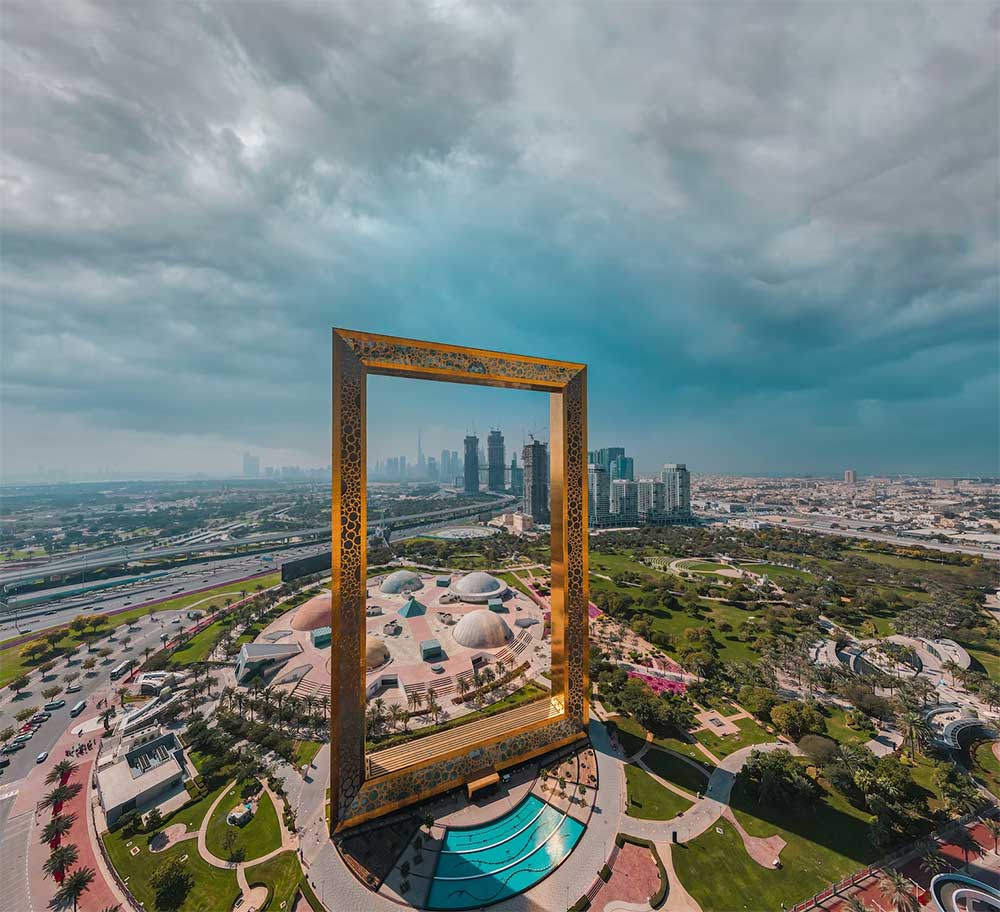
Practical travel tips for visiting Dubai:
Plan your trip in advance to take advantage of deals and discounts on flights and hotels.
Be aware of the local culture and customs, and dress modestly when in public:
Dubai is located in the United Arab Emirates (UAE), which has a rich culture and tradition that is deeply rooted in Islam. Here are a few things to keep in mind about the local culture and customs:
Dress modestly: Visitors should dress modestly, especially when visiting mosques or other religious sites. Women should cover their shoulders and legs, and men should avoid wearing shorts.
Respect Ramadan: During the month of Ramadan, Muslims fast from sunrise to sunset, and it’s important to be respectful of this practice. Eating, drinking, and smoking in public during the day is frowned upon during this time.
Respect local customs: Dubai is a very diverse city, but it’s still important to respect local customs and traditions. This includes avoiding public displays of affection, using your right hand for eating, and removing your shoes before entering a mosque or someone’s home.
Greeting: Greet people with the traditional Arabic greeting of “As-Salamu Alaykum” (Peace be upon you) and wait for a response before starting a conversation.
Be aware of the public behavior: Alcohol consumption is allowed in designated areas only, such as hotel bars and clubs. Public displays of affection are not tolerated, and it is illegal to be under the influence of drugs.
Respect the Islamic holidays: Dubai has a number of Islamic holidays throughout the year, and businesses and government offices may be closed during these times.
Keep in mind that Dubai can be very hot, so be sure to stay hydrated and wear sunscreen.
Pack comfortable shoes as there is a lot of walking and exploring to do.
Consider purchasing a local SIM card for your phone to have easy access to maps and other travel resources.
Be aware of the cost of living which is quite high in Dubai, especially in terms of food and shopping.
Dubai is a very safe city, but it’s still important to be aware of your surroundings and take the usual precautions.
Make sure to have your passport with you at all times, as you’ll need it to enter certain places and for ID checks.
Take advantage of the public transportation system, such as the metro and buses, to get around.
Lastly, plan to spend some time at the beach and enjoy the water activities like jet skiing, paragliding and many more.
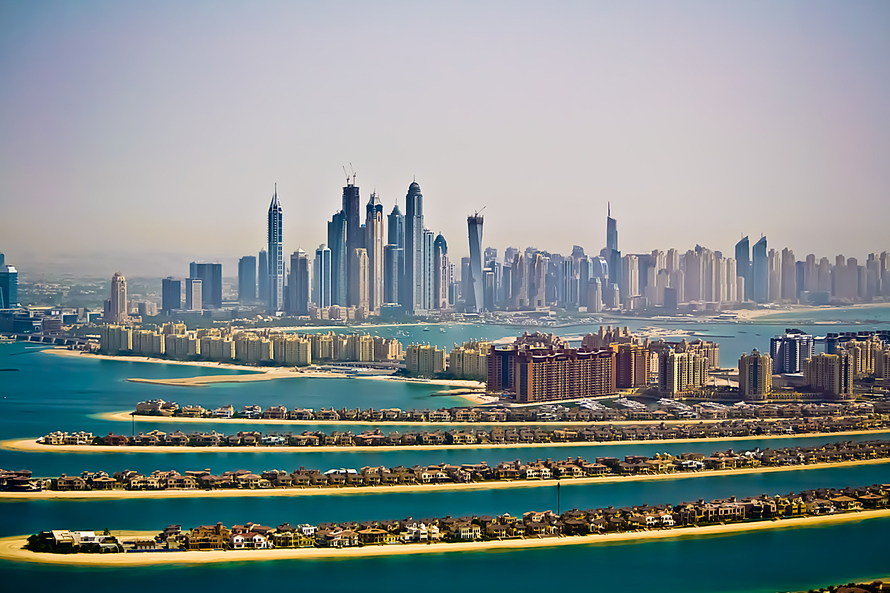
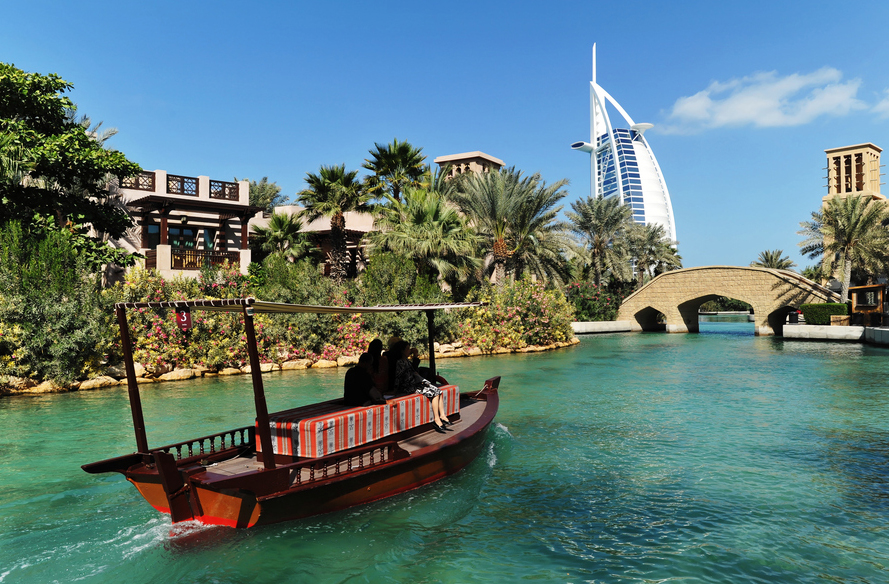
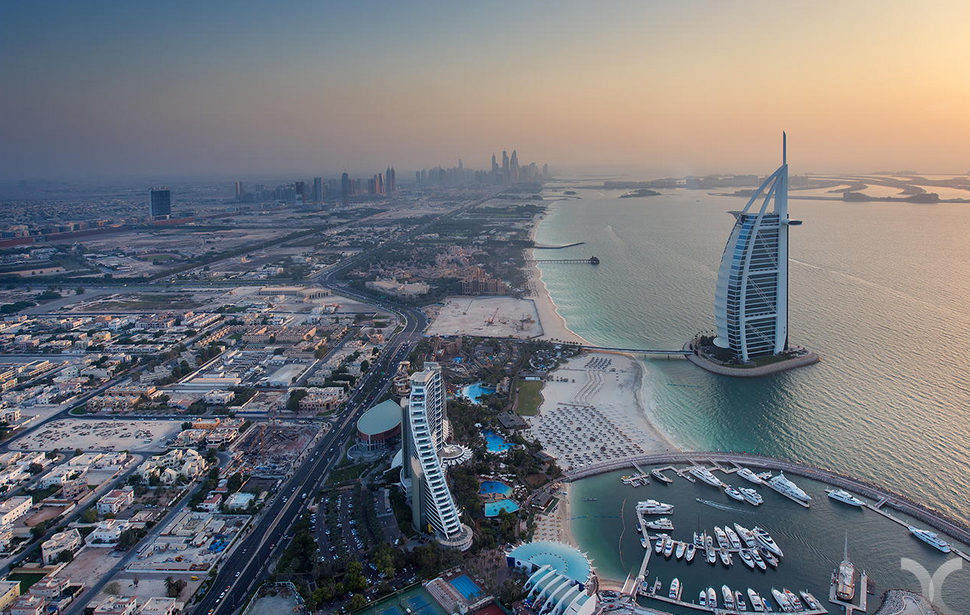
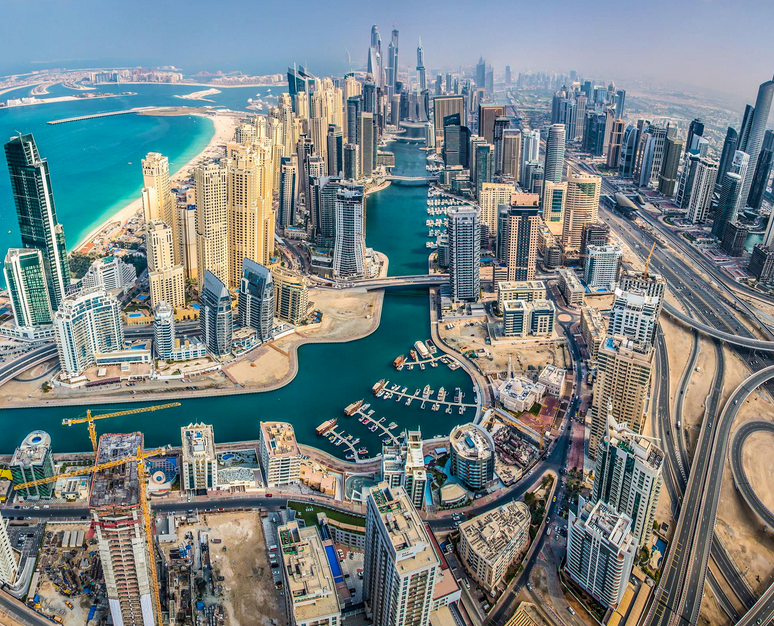
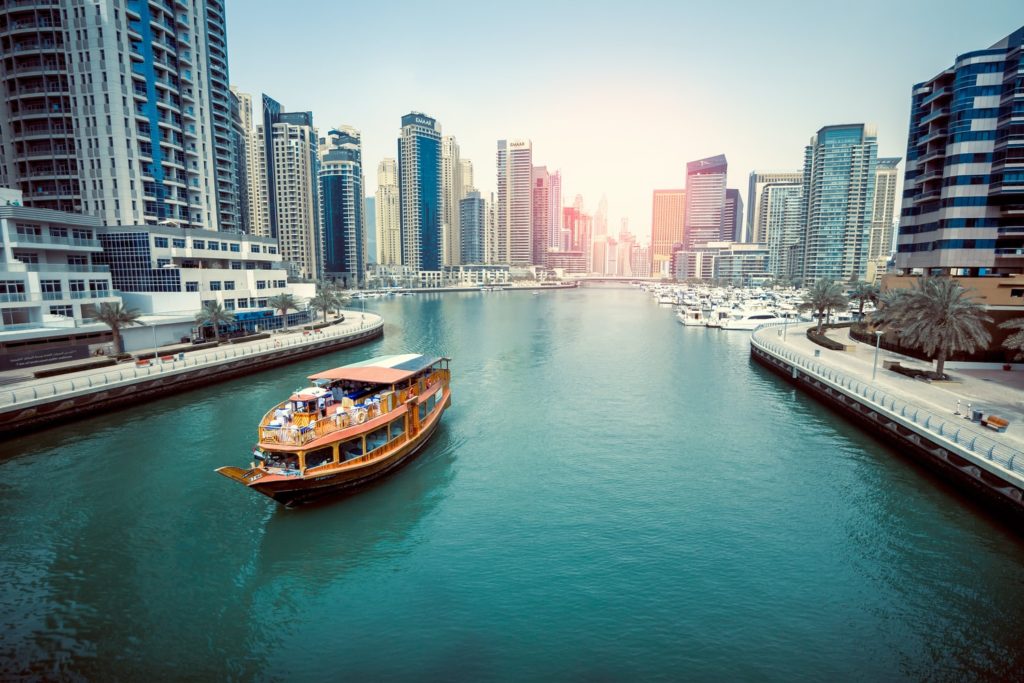
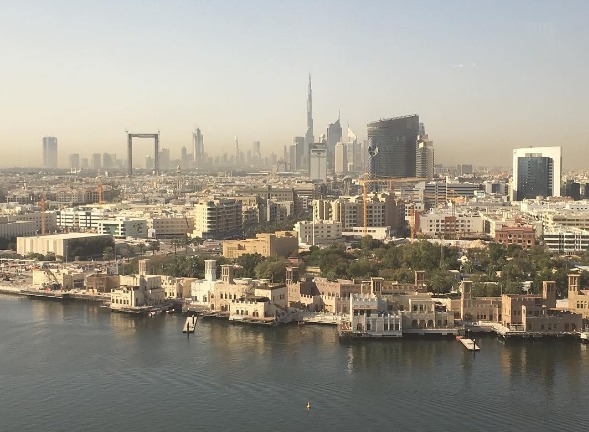
Getting around Dubai
Dubai is a relatively easy city to get around, with a variety of transportation options available. Here are the best ways to get around Dubai:
Dubai Metro: This is the most efficient and affordable way to get around the city. The metro has two lines (red and green) that cover most of the major areas of the city, and it’s easy to use with clear signage and announcements in English.
Taxis: Taxis are widely available throughout the city and are relatively affordable. They can be hailed on the street or booked in advance. They are metered, so be sure to check the fare before starting your journey.
Buses: Dubai has an extensive bus network that covers most of the city. Buses are operated by the RTA and are a cost-effective way to get around.
Cars: If you prefer the convenience of having your own car, there are several car rental companies in Dubai. Keep in mind that traffic can be heavy during peak hours, so plan accordingly.
Tram: Dubai Tram is relatively new and runs along the coast of the city, connecting some of the main tourist destinations.
Water Taxis: This is a unique way to get around the city and explore the waterways. Water taxis operate on the Creek and offer a scenic and efficient way to travel between Deira and Bur Dubai.
Water Bus: This is a unique way to get around the city and explore the waterways. Water bus operates on the Dubai Marina and JBR, and it offers a scenic and efficient way to travel between these areas.
Bicycles and E-scooters: This is an eco-friendly way to get around the city. There are several bike-sharing companies operating in the city, and it’s easy to find a bike or e-scooter to rent.
Shopping, paying and taxes
When shopping or paying for food in Dubai, it’s important to be aware of the local taxes, service charges, and customs around tipping.
Taxes: Dubai has a value-added tax (VAT) of 5% on most goods and services, which is included in the prices displayed. However, certain basic food items, healthcare and educational services are VAT-free.
Service charges: Service charges of around 10% are commonly added to restaurant and hotel bills in Dubai, and it is considered standard practice to include this charge in the bill.
Tipping: Tipping is expected in many service-related businesses in Dubai, including restaurants, hotels, and taxi rides. Generally, 10-15% of the bill is considered a standard tip for good service.
Bargaining: Bargaining is not a common practice in Dubai’s shopping malls and supermarkets, but it’s expected in markets and street-side shops.
Payment: Cash and credit and debit cards are widely accepted in Dubai. Many places also accept mobile payments such as Apple Pay, Google Wallet and Samsung Pay.
Return policy: Return policies can vary by store, but most shops will accept returns within a certain period (usually 7-14 days) if the item is in its original condition and with the receipt.
Dubai is a very tourist-friendly city and offers a wide range of shopping and dining options, with a good mix of modern malls and traditional souks. Visitors should keep in mind that, while the standard of living is high, it’s also important to be aware of the customs and etiquette in order to have a pleasant and efficient experience.
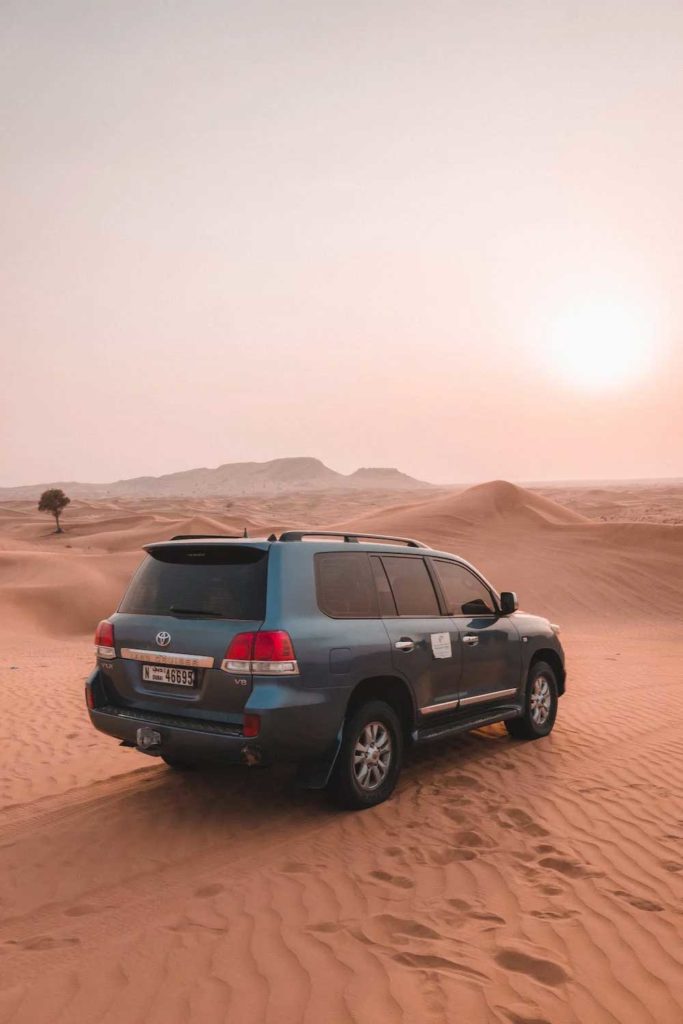
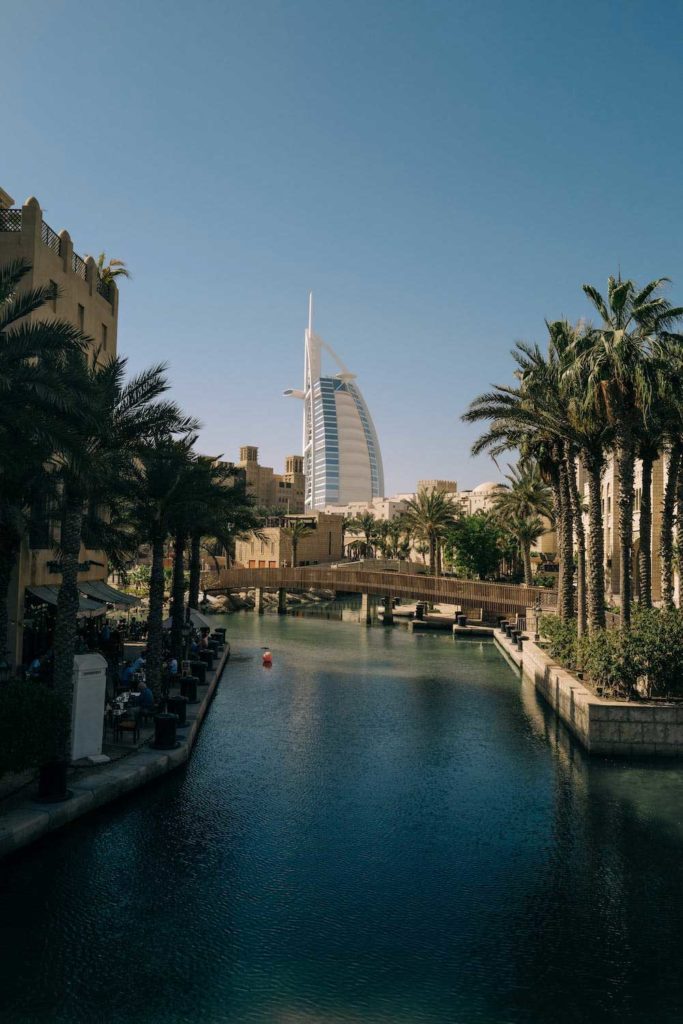
Safety and security in Dubai
Dubai is a generally safe and secure city with a low crime rate, and visitors are unlikely to experience any major safety or security issues. However, as with any destination, it’s important to take precautions and be aware of your surroundings. Here are some tips for staying safe in Dubai:
Be aware of your surroundings: Dubai is a busy city with a lot of activity, so it’s important to be aware of your surroundings at all times. Be cautious when crossing busy streets and be aware of any potential hazards.
Take precautions with your valuables: Dubai is generally a safe city, but it’s still important to take precautions with your valuables. Keep your passport, cash, and other important documents in a safe place, and be cautious of pickpockets in crowded areas.
Be mindful of cultural norms: Dubai is a culturally diverse city, and it’s important to be respectful of local customs and traditions. Dress modestly in public places, be mindful of your behavior, and avoid any actions that could be considered offensive.
Use licensed taxis: Taxis are a popular mode of transportation in Dubai, but it’s important to use licensed taxis from reputable companies to ensure your safety.
Stay hydrated: Dubai can be very hot, especially during the summer months, so it’s important to stay hydrated by drinking plenty of water and avoiding prolonged exposure to the sun.
Follow the rules and regulations: Dubai has strict rules and regulations that visitors are expected to follow. These include laws around public behavior, alcohol consumption, and dress codes. It’s important to familiarize yourself with these rules and regulations to avoid any legal issues.
Final travel tips for Dubai
Electricity: Dubai’s electrical system operates on 220-240 volts, with a Type G plug. If you’re traveling from a country that uses a different type of plug or voltage, you may need to bring a travel adapter.
Currency: The currency in Dubai is the United Arab Emirates Dirham (AED). It’s easy to find ATMs and currency exchange offices throughout the city, and most hotels, restaurants, and shops accept credit cards.
Language: Arabic is the official language of Dubai, but English is widely spoken throughout the city.
Dress Code: While Dubai is a modern and cosmopolitan city, it’s important to be mindful of local customs and dress modestly in public places. Swimwear is only permitted at the beach or in swimming pools, and it’s important to cover up when leaving the beach or pool area.
Transportation: Dubai has an efficient and modern public transportation system that includes buses, metro, and taxis. The Dubai Metro is especially convenient for getting around the city, with stops at major tourist destinations. Taxis are also widely available and relatively affordable.
Ramadan: Ramadan is a month of fasting and spiritual reflection for Muslims, and it’s important to be respectful of this important religious observance. During Ramadan, it’s forbidden to eat or drink in public during daylight hours, and some restaurants and shops may have reduced hours.
Etiquette: Dubai is a multicultural city, and it’s important to be respectful of different customs and traditions. When greeting someone, it’s common to shake hands and say “Salaam aleikum” (peace be upon you). It’s also important to remove your shoes when entering a mosque or someone’s home.
–
Check our other travel guides.